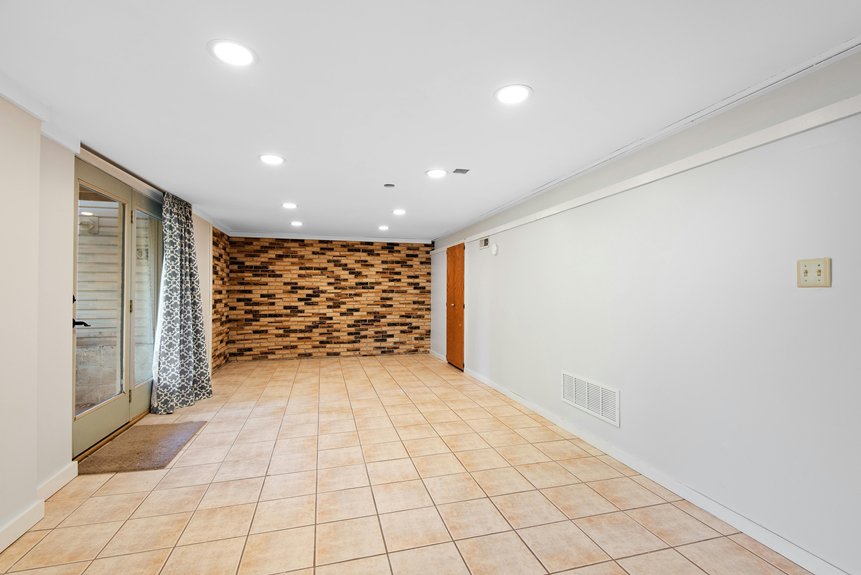If you’ve noticed moisture or water damage in your basement, you’re not alone. Many homeowners face similar challenges, and understanding basement injection waterproofing can be the key to resolving these issues. This method effectively seals cracks and prevents leaks, protecting your home from costly damage. Ready to learn about the various materials and techniques available? There’s much to explore that could make your basement a dry, healthy space.
Key Takeaways
- Basement injection waterproofing effectively seals cracks and voids, preventing water seepage and protecting your home’s foundation.
- Choose from various injection materials like polyurethane foam, epoxy resin, or acrylic grout based on your specific basement needs.
- Regularly inspect your basement for signs of moisture such as stains, mold, or musty odors to determine the necessity of waterproofing.
- The injection process involves identifying problem areas, selecting appropriate techniques, and applying sealing materials to create a durable waterproof barrier.
- Proper waterproofing enhances property value, improves indoor air quality, and reduces future repair costs associated with water damage.
Understanding Basement Injection Waterproofing
When it comes to keeping your basement dry, understanding basement injection waterproofing can make all the difference.
This technique targets basement moisture by injecting specialized materials into cracks and voids in your foundation. By doing so, you create a barrier that prevents water from seeping in.
You’ll discover that this method is effective in managing water-related issues and can complement other waterproofing techniques you might consider.
It’s essential to identify the source of moisture first, ensuring that the injection process addresses the root cause, not just the symptoms.
With the right approach, you can reclaim your basement as a usable space.
Types of Injection Materials
Once you’ve identified the source of moisture in your basement, selecting the right injection materials is key to an effective waterproofing solution.
Here are three popular options to take into account:
- Polyurethane Foam: This expands upon application, filling cracks and gaps, creating a waterproof barrier.
- Epoxy Resin: Known for its strength, epoxy resin bonds well to concrete, providing a durable solution against water intrusion.
- Acrylic Grout: This flexible option is ideal for dynamic cracks, allowing movement while preventing leaks.
Choosing the right material guarantees your basement stays dry and protected for years to come.
The Benefits of Basement Injection Waterproofing
When you choose basement injection waterproofing, you’re not just protecting your home from water damage; you’re also boosting its overall value.
This method helps improve indoor air quality by preventing mold and mildew growth, making your space healthier.
Let’s explore how these benefits can transform your basement into a safe, valuable, and comfortable area.
Prevents Water Damage
As moisture seeps into your basement, it can lead to significant water damage that affects not just the structural integrity of your home but also your health.
Basement injection waterproofing is an effective method to combat this issue. Here are three key prevention strategies:
- Seal Cracks: Filling in cracks prevents water from infiltrating your basement, protecting your foundation.
- Redirect Water: Ensuring proper drainage around your home keeps moisture away from your basement.
- Control Humidity: Maintaining lower humidity levels averts mold growth and keeps your indoor air quality high.
Enhances Property Value
Investing in basement injection waterproofing can greatly enhance your property value. By preventing water damage, you not only protect your home but also boost its overall property appeal.
Prospective buyers are attracted to homes with dry, usable basements, increasing your resale potential. A waterproofed basement signifies a well-maintained property, giving you a competitive edge in the market.
Additionally, it reduces the risk of costly repairs down the line, making your home more appealing to buyers. Ultimately, ensuring your basement is waterproofed creates a lasting impression that can considerably elevate both your property’s value and marketability.
Improves Indoor Air Quality
A waterproofed basement does more than just enhance property value; it also greatly improves indoor air quality.
By investing in basement injection waterproofing, you can enjoy several key benefits:
- Mold Prevention: Eliminating moisture stops mold growth, protecting your family’s health.
- Enhanced Air Filtration: A sealed basement reduces allergens and pollutants, ensuring cleaner air circulation throughout your home.
- Humidity Control: Maintaining ideal humidity levels prevents musty odors, creating a more comfortable living environment.
With these improvements, you’ll breathe easier, knowing your home is a healthier place for you and your loved ones.
Assessing Your Basement’s Waterproofing Needs
How can you determine if your basement needs waterproofing? Start with a thorough basement inspection.
Look for visible signs of moisture, such as water stains, mold, or musty odors.
Next, conduct a moisture assessment by checking the humidity levels and using a moisture meter on walls and floors.
If you notice persistent dampness or flooding, it’s vital to address these issues before they worsen.
Don’t forget to evaluate seasonal changes; heavy rain or melting snow can exacerbate problems.
Taking these steps will help you identify whether your basement requires immediate waterproofing solutions.
The Basement Injection Process
When it comes to basement waterproofing, understanding the injection process is essential for effectively sealing leaks and preventing future moisture problems.
The process generally involves three key steps:
The injection process for basement waterproofing includes identifying leaks, selecting techniques, and applying sealing methods.
- Identifying Problem Areas: Locate the cracks or leaks where water is entering.
- Choosing Injection Techniques: Select appropriate methods, such as polyurethane foam or epoxy injections, based on the severity of the issue.
- Applying Sealing Methods: Inject the chosen material into the cracks to create a waterproof barrier.
DIY vs. Professional Services
After mastering the basement injection process, you might wonder whether to tackle the job yourself or hire professionals.
DIY techniques can save you money and give you hands-on experience, but they require time, effort, and some technical know-how. If you’re confident in your skills, a DIY approach may work for you.
However, consider the professional advantages: experts bring specialized tools, knowledge, and experience that can guarantee a more effective and lasting solution. They can quickly diagnose issues and navigate any complications, often providing warranties for their work.
Weigh your options carefully to choose the best route for your basement waterproofing needs.
Maintenance Tips for a Dry Basement
To keep your basement dry and free from moisture, it’s vital to implement regular maintenance practices.
Effective basement maintenance helps with moisture control and prevents future issues.
Here are three essential tips:
- Inspect Gutters and Downspouts: Confirm they’re clear of debris, directing water away from your foundation.
- Check for Cracks: Regularly examine walls and floors for any cracks and seal them promptly to prevent water intrusion.
- Monitor Humidity Levels: Use a dehumidifier to maintain humidity below 60%, reducing the risk of mold growth.
Conclusion
In summary, basement injection waterproofing is a smart investment for protecting your home from moisture damage. By understanding the various injection materials and processes, you can make informed choices that suit your specific needs. Whether you choose to tackle the project yourself or hire a professional, maintaining a dry basement is essential for your home’s value and your family’s health. Stay proactive, and you’ll enjoy a safer, more comfortable living environment for years to come.

